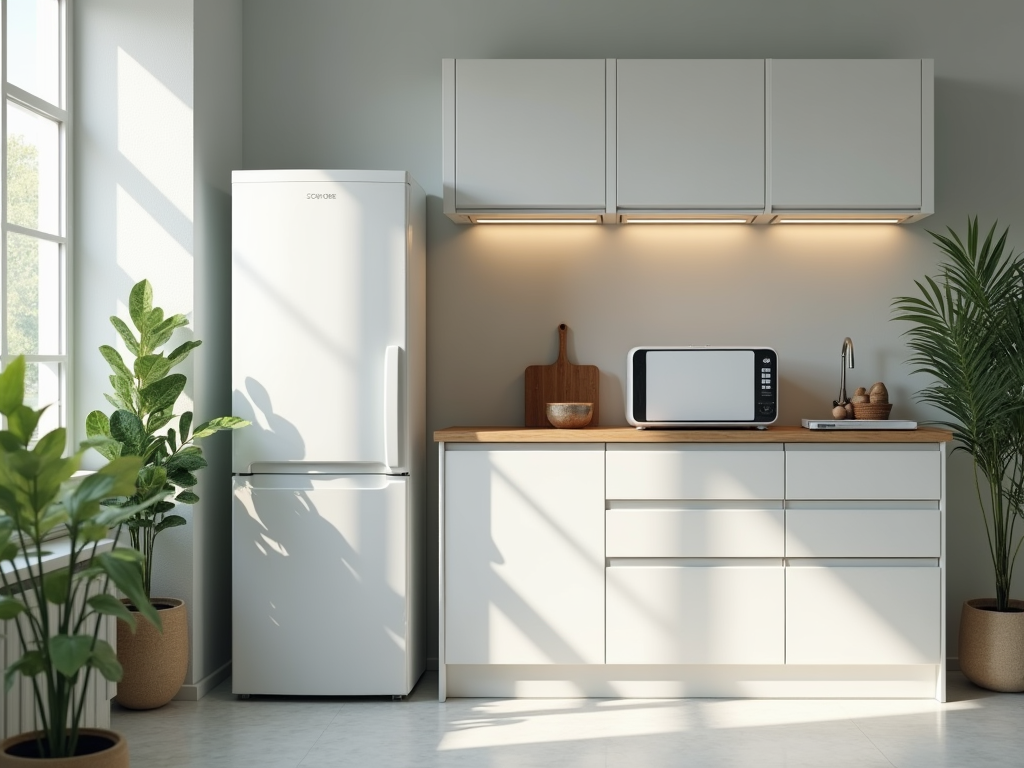Yes, a refrigerator can run on an inverter, which is a device that converts direct current (DC) into alternating current (AC). This capability is especially beneficial during power outages or in off-grid situations where traditional power sources are not available. Inverters allow refrigerators to operate efficiently, ensuring that food stays fresh and appliances remain functional even when the main electricity supply is interrupted. In this article, we will explore the types of inverters suitable for refrigerators, their advantages, and some important considerations when using them.
Understanding Inverters

Inverters are crucial components in many modern electrical systems, especially those that use renewable energy sources. They serve the essential purpose of converting DC power from batteries or solar panels into AC power that household appliances, such as refrigerators, can use. Understanding the types of inverters available is vital for ensuring the smooth operation of your appliances.
There are primarily three types of inverters available for running home appliances, including refrigerators:
- Modified Sine Wave Inverters: These inverters create a waveform that is not perfectly sinusoidal, which makes them less efficient for running sensitive electronics. However, they still work well for most appliances, including refrigerators.
- Pure Sine Wave Inverters: Providing a clean and stable power supply, these inverters are ideal for all types of electrical appliances. They ensure that the refrigerator operates smoothly and efficiently, without any risk of damage.
- Grid-Tie Inverters: These inverters are designed to feed excess power back into the grid. They are commonly used with solar panel systems but do not store power for off-grid use.
Benefits of Running a Refrigerator on an Inverter

Using an inverter to run a refrigerator offers several significant advantages. First, it provides uninterrupted power during outages, ensuring your food remains fresh. Additionally, inverters can efficiently manage energy consumption, which can lead to savings on electricity bills. In both urban and rural settings, having an inverter can enhance energy resilience and reliance on renewable sources. Lastly, inverters produce less noise than traditional generators, which is a considerable advantage when maintaining a calm living environment.
Considerations When Choosing an Inverter for Your Refrigerator
Selecting the right inverter for your refrigerator requires careful consideration of several factors:
- Wattage Requirements: Determine the total wattage your refrigerator requires. This includes the starting power (usually higher) and running power.
- Battery Capacity: Make sure your battery can handle the wattage for the required duration. Consider a deep cycle battery for longer usage.
- Type of Inverter: Choose between a modified or pure sine wave inverter based on your refrigerator’s compatibility.
- Portability: If you’re using the inverter for mobile applications, consider its weight and size.
- Brand Reputation: Research brands and read reviews to ensure you’re getting a durable and reliable product.
Setting Up Your Refrigerator with an Inverter
Installing a refrigerator to run on an inverter involves specific steps to ensure safety and efficiency. Begin by consulting the user manuals for both the refrigerator and the inverter to understand compatibility. Following this, you will need to connect the inverter to a suitable battery that matches the inverter specifications.
Next, plug the refrigerator into the inverter. Ensure that the inverter is turned off during installation to avoid electrical mishaps. Once everything is connected, turn on the inverter and monitor the refrigerator to ensure it’s operating correctly. It is also advisable to use a surge protector to safeguard the refrigerator against any power spikes.
Conclusion
In conclusion, running a refrigerator on an inverter is a feasible and often advantageous solution for maintaining food preservation during power interruptions. By choosing the correct type of inverter and understanding its compatibility with your refrigerator, you can ensure efficient operation. Whether in a home setting or off-grid location, owing an inverter can provide safety, reliability, and energy savings.
Frequently Asked Questions
1. Can all refrigerators be run on an inverter?
Not all refrigerators are compatible with inverters. It’s essential to check the refrigerator’s power requirements and choose the right type of inverter.
2. How do I know the wattage of my refrigerator?
The wattage is usually listed on the refrigerator’s nameplate, which is located either inside the door or on the back of the unit.
3. Will an inverter affect the performance of my refrigerator?
As long as the inverter is compatible and provides sufficient power, there should be no negative impact on the refrigerator’s performance.
4. Do inverters consume power while idle?
Yes, inverters consume a small amount of power even when not actively powering a device, which is referred to as no-load losses.
5. How long can an inverter run a refrigerator?
The duration depends on the battery capacity and the power consumption of the refrigerator. It is crucial to calculate the battery reserve based on the refrigerator’s wattage.





